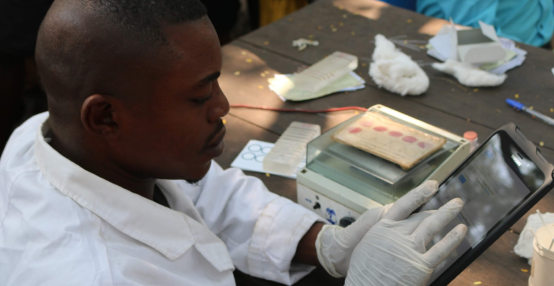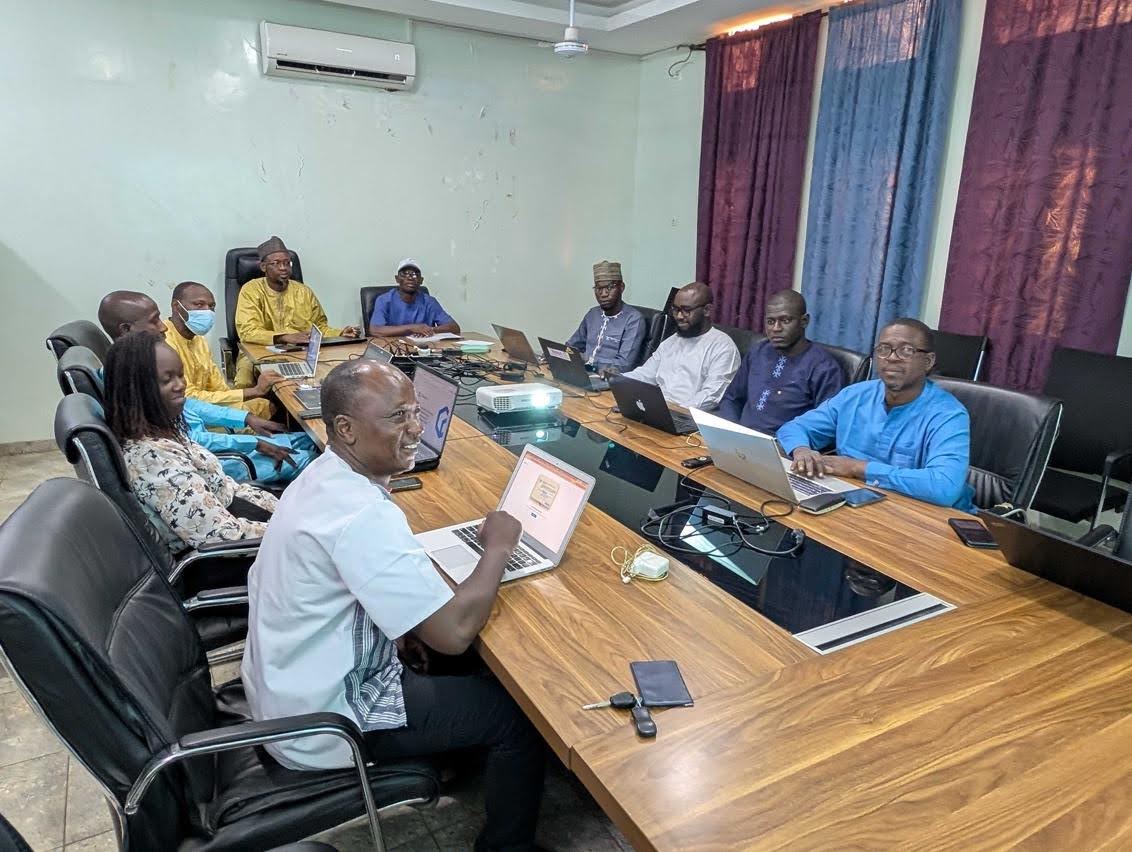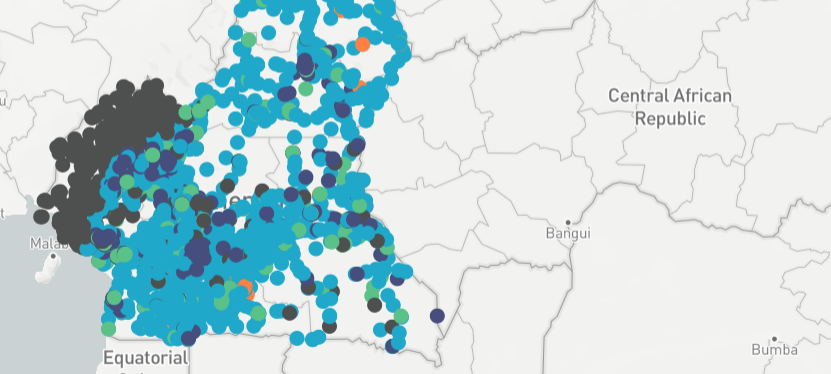L’analyse des données au service de la surveillance des maladies tropicales négligées : le pari réussi de la formation en R au Niger
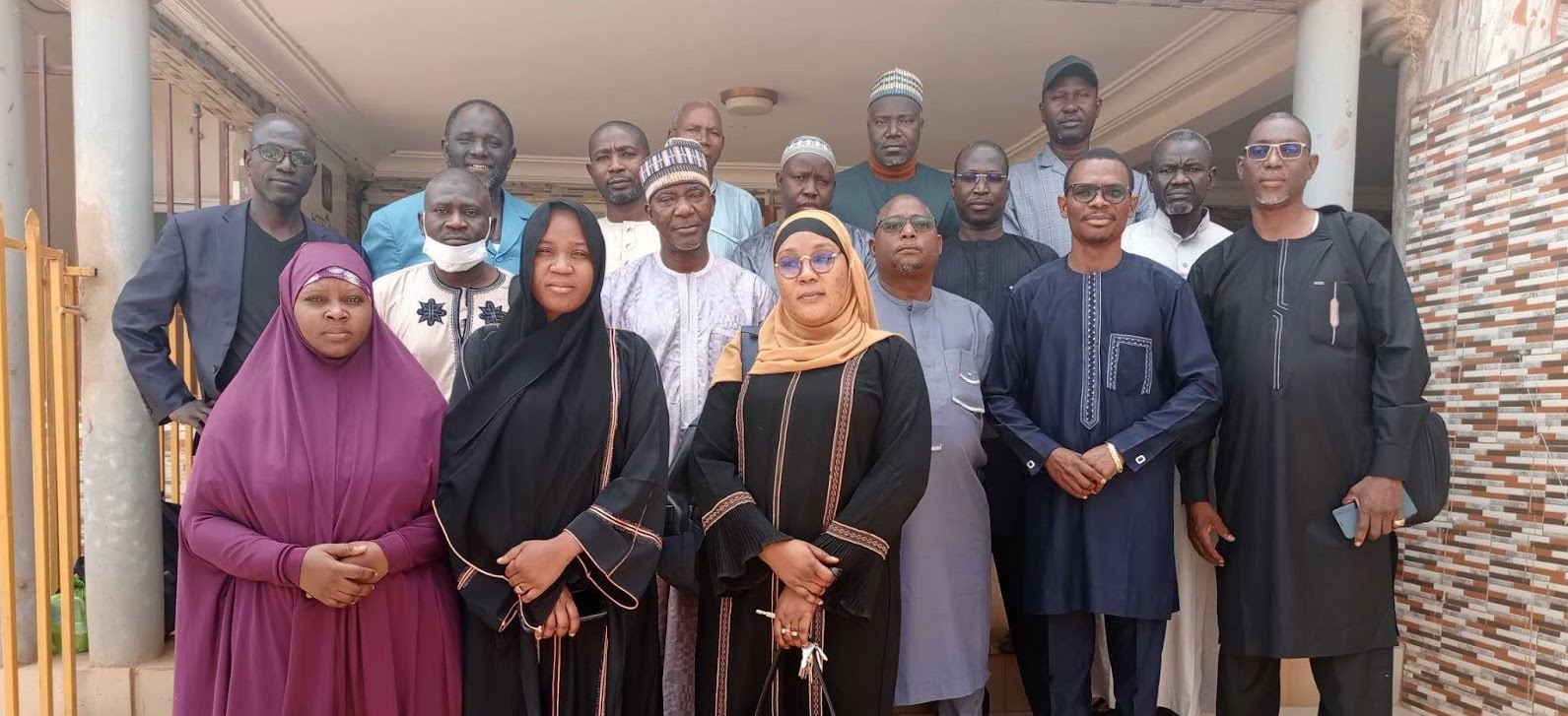
Dans un pays où la charge des maladies tropicales négligées (MTN) reste un défi de santé publique, le Niger a entrepris une transformation stratégique de sa capacité à analyser et exploiter les données épidémiologiques. Découvrez comment Bluesquare accompagne les acteurs majeurs à travers un appui technique sur l’utilisation des données pour informer la prise de décisions, dans le cadre d’un projet financé par la Fondation Gates.
Renforcer la capacité d’analyse et d’utilisation des données
En mars 2025, une étape décisive a été franchie avec l’organisation d’un atelier de formation en R, un langage open source puissant dédié à l’analyse statistique.
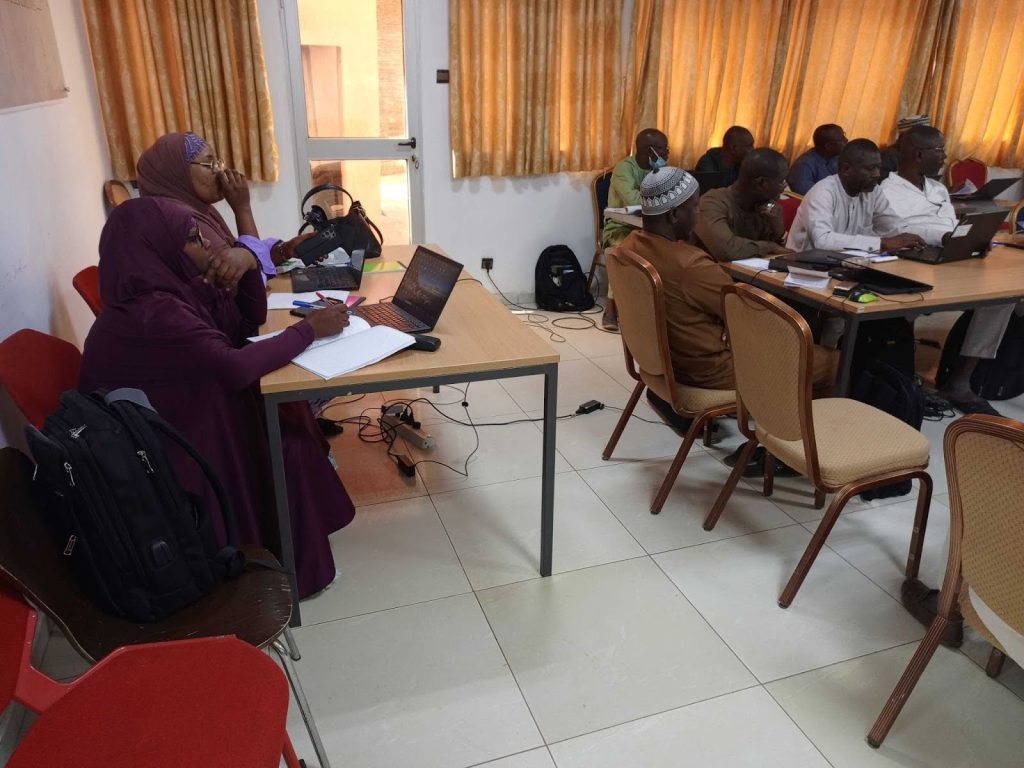
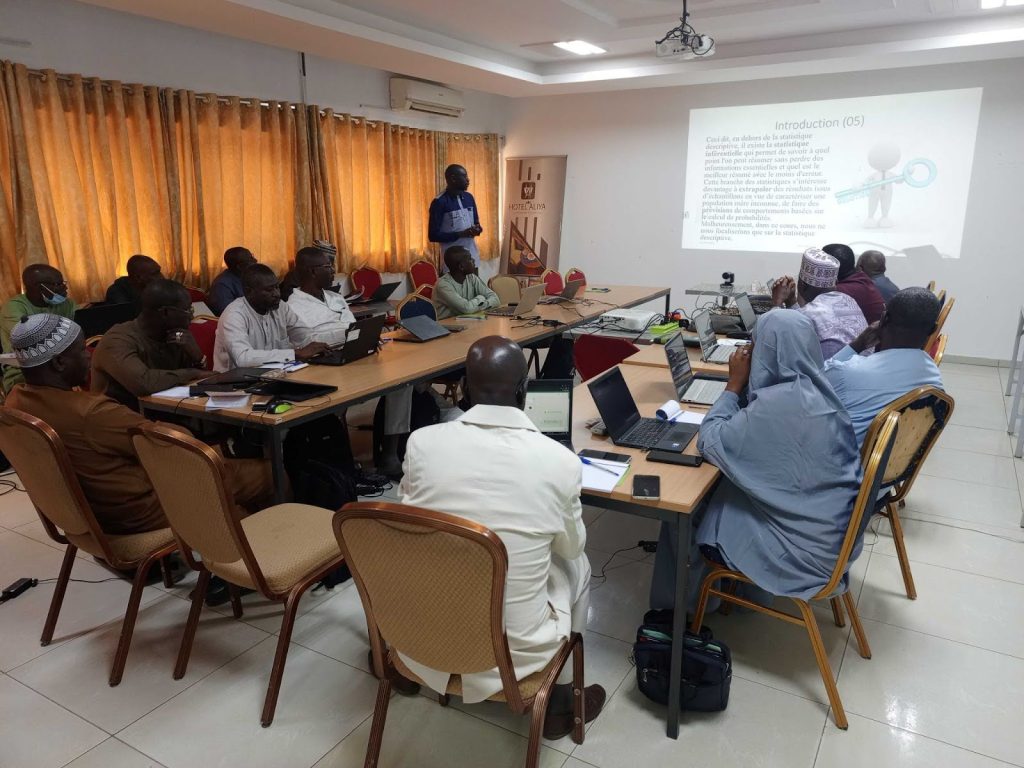
L’objectif ? Outiller les acteurs du Programme national d’élimination de la filariose lymphatique et de l’onchocercose (PNEFLO), des Directions régionales de la santé publique (DRSP) et des districts sanitaires pour renforcer la surveillance post-élimination de l’onchocercose et de la filariose lymphatique à travers une exploitation avancée des données.
Les objectifs spécifiques de la formation étaient de :
- Initier les participants à l’environnement R et RStudio ;
- Renforcer les compétences en statistiques descriptives appliquées aux données MTN ;
- Faciliter l’analyse, la visualisation et la modélisation des données issues des campagnes de traitement de masse et des enquêtes de prévalence ;
- Créer une dynamique interne pour valoriser les données du programme à travers la rédaction d’articles scientifiques.
Organisé du 4 au 7 mars 2025 à Niamey, l’atelier a rassemblé 25 participants. Animé par Bluesquare, l’événement a alterné entre des sessions théoriques sur les fondements statistiques, des travaux pratiques avec les données réelles du PNEFLO et des mini-projets en groupe pour analyser des indicateurs clés de surveillance.ators.
Une formation particulièrement réussie
Les résultats de cette formation en R ont été particulièrement marquants, et montrent que la formation a été efficace. Les personnes formées ont montré une progression spectaculaire de leurs compétences :
- Score moyen au pré-test : 7,1/20
- Score moyen au post-test : 16,5/20
… Soit un gain de +9,4 points ou 130 % d’amélioration !
Leur taux de satisfaction était élevé, elles ont pu réaliser des premiers cas d’usage (analyses exploratoires par région, par sexe et par type de MTN) et une dynamique post-formation a d’ores et déjà été enclenchée. En effet, le PNEFLO a exprimé la volonté de créer une cellule scientifique pour produire des publications scientifiques.
Cette formation représente bien plus qu’un renforcement de capacités techniques et aura un impact durable. Elle incarne :
- Une appropriation locale des outils d’analyse modernes ;
- Un tremplin pour une meilleure prise de décision fondée sur les données ;
- Une base pour l’institutionnalisation de la culture de la donnée dans la lutte contre les MTN.
Avec ce succès, le Niger pose les bases pour étendre cette initiative à d’autres régions et programmes. Le modèle de formation pourrait être répliqué dans d’autres pays de la sous-région, en lien avec les orientations stratégiques de l’Organisation mondiale de la santé et les partenaires comme la Fondation Gates.
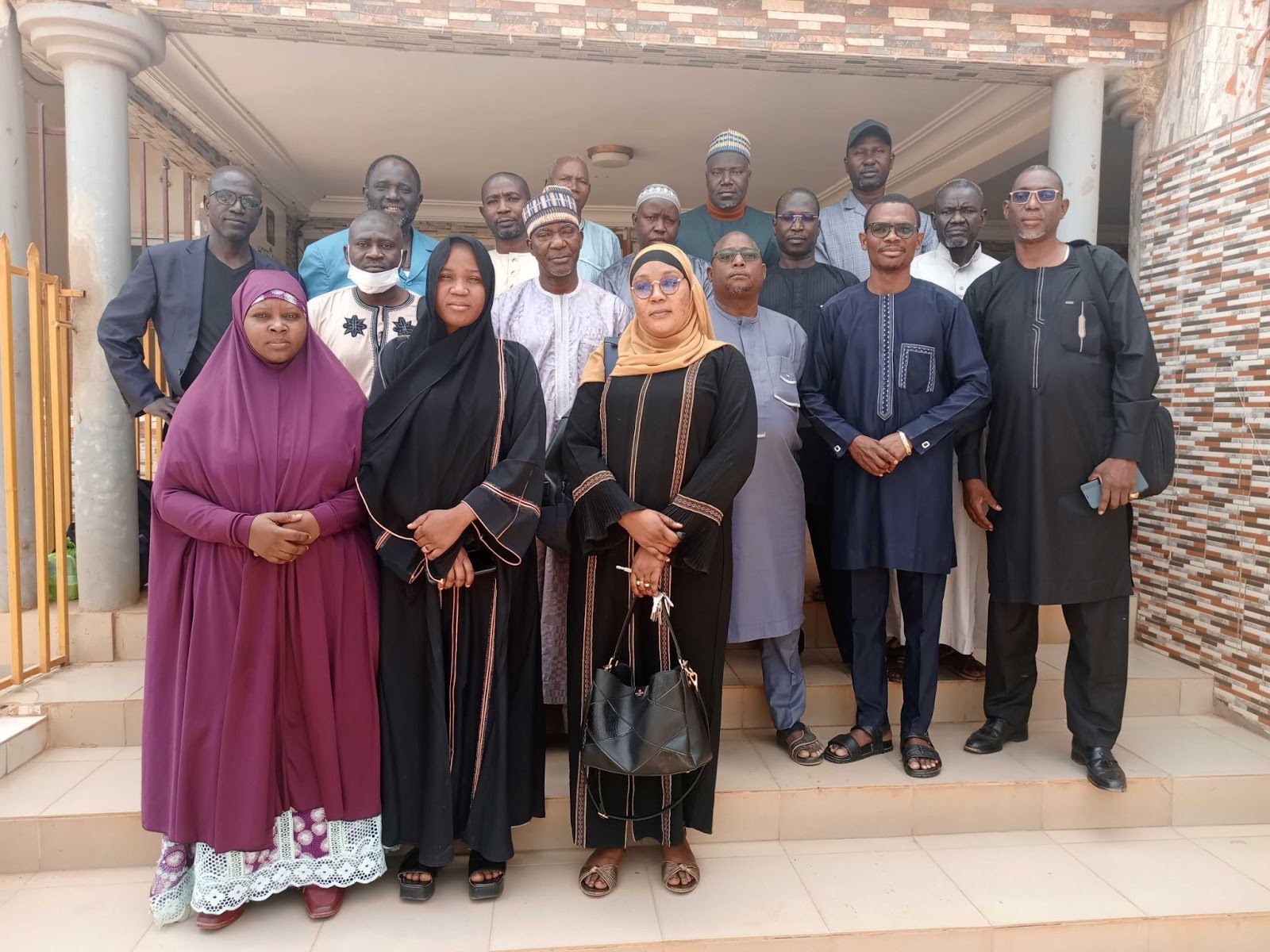
Félicitations et merci aux acteurs impliqués, spécialement Dr Salissou Adamou, Coordonnateur du programme, pour sa confiance et son leadership.
Pour plus d’information :


